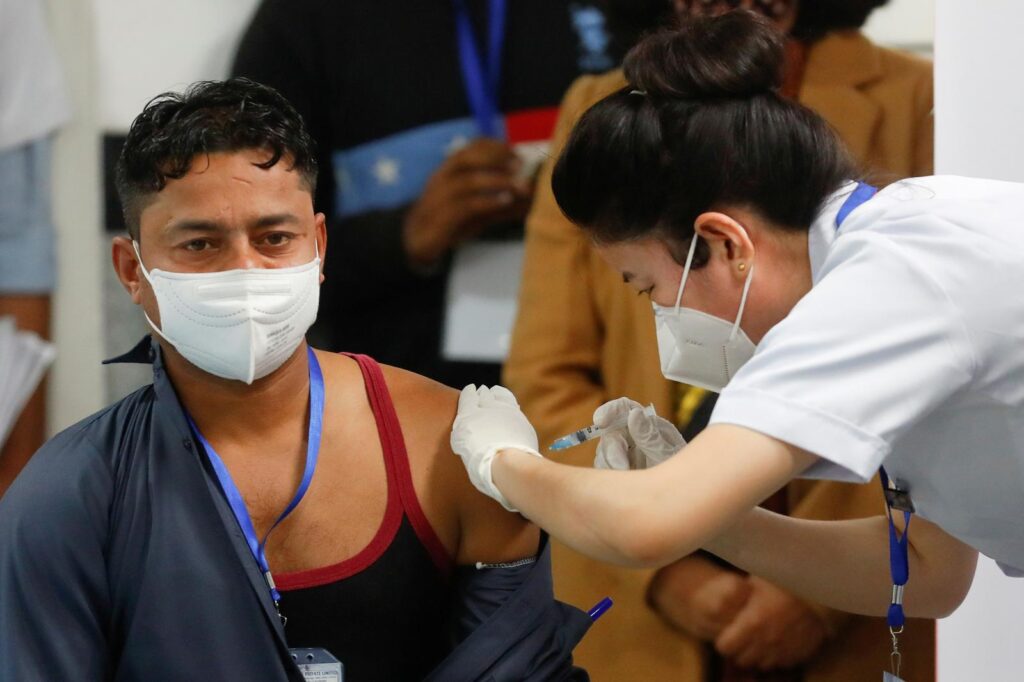Nobody Can Be Forced To Get Jabbed: SC
May 2, 2022 | Pratirodh Bureau
FILE PHOTO: Sanitation worker Manish Kumar, who according to officials is the first person in the country vaccinated against COVID-19, receives a dose of Bharat Biotech's COVAXIN during the COVID-19 vaccination campaign at the All India Institute of Medical Sciences Hospital in New Delhi on January 16, 2021
The Supreme Court on Monday said that no person can be forced to get vaccinated against Covid and asked the Centre to make public the effect of such an immunisation.
A bench of Justices L Nageswara Rao and BR Gavai said bodily autonomy and integrity are protected under Article 21 of the Constitution. The top court said the current Covid vaccine policy cannot be said to be manifestly arbitrary and unreasonable. “Till numbers are low, we suggest that relevant orders are followed and no restriction is imposed on unvaccinated individuals on access to public areas or recall the same if already not done,” the bench said.
Regarding segregation of vaccine trial data, subject to privacy of individuals, in all trials conducted and to be subsequently conducted, all data must be made available to the public without further delay, it said.
The apex court also directed the Union of India to publish reports on adverse events of vaccines from the public and doctors on a publicly accessible system without compromising the data of individuals.
The court delivered the judgment on a plea filed by Jacob Puliyel, seeking directions for disclosure of data on clinical trials of Covid vaccines and post-jab cases.
Earlier in March, the Centre had clarified in the Supreme Court that it had not made COVID-19 vaccines mandatory and had only said that the vaccination should be 100 per cent.
The clarification from Solicitor General Tushar Mehta, appearing for the Centre, came after Additional Advocate General for Tamil Nadu Amit Anand Tiwari told a bench of Justices L Nageswara Rao and B R Gavai that the Union government had “issued a mandate to us that 100 per cent people should be vaccinated.”
The petition by Jacob Puliyel, a former member of the National Technical Advisory Group on Immunisation (NTAGI), had argued that states mandating vaccination for accessing benefits or services is a violation of citizens’ rights, and therefore, unconstitutional. Many states, said the petition, had made vaccines necessary for state government employees, for travel in public transport and to access subsidised food grains.
The petition called for clinical trial data of Covid vaccines to be made public and alleged that vaccines being administered had not been adequately tested for safety or efficacy and were licensed under emergency use authorisation without trial data being disclosed to the public.
The Centre had argued in court that the petition was “against national interest” and would create vaccine hesitancy. It had also said vaccination is voluntary but states had enforced mandates “based on potential hazards”.
